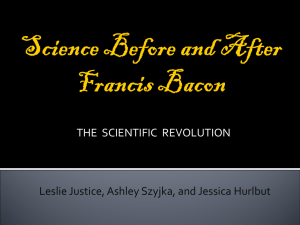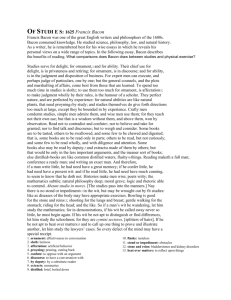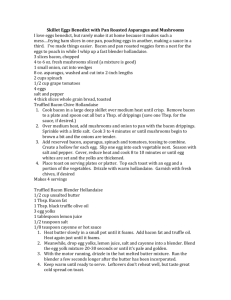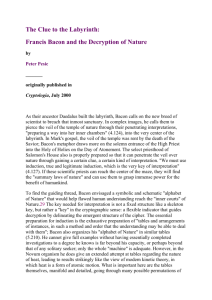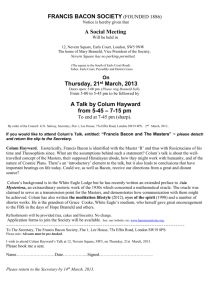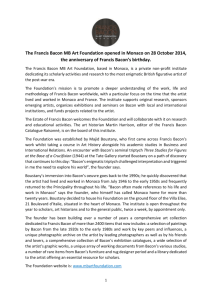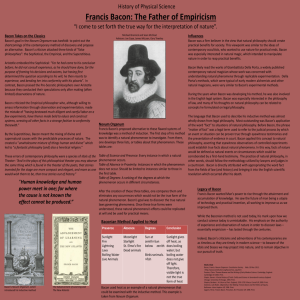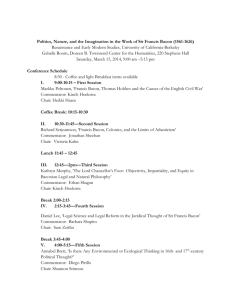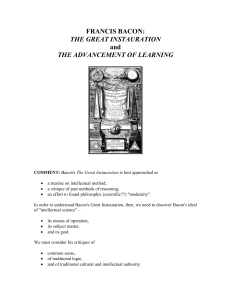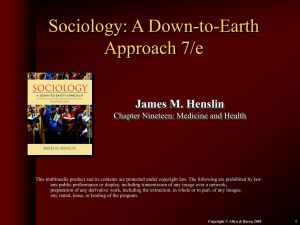Francis Bacon
advertisement
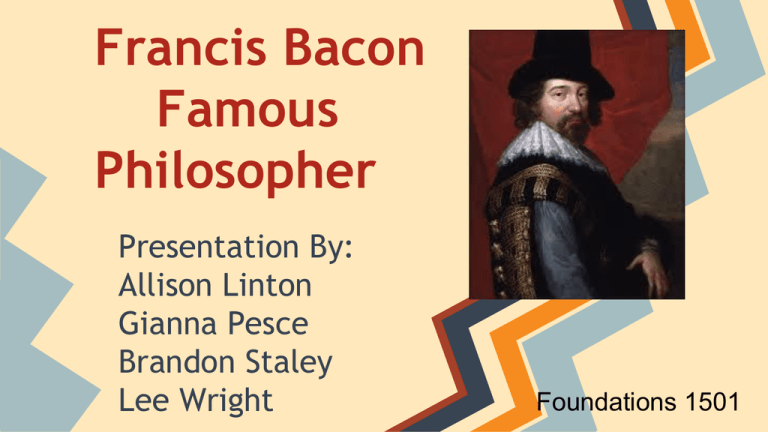
Francis Bacon Famous Philosopher Presentation By: Allison Linton Gianna Pesce Brandon Staley Lee Wright Foundations 1501 Early Life -Born in London, January 22, 1561 to Sir Nicholas Bacon, Lord keeper of the seal and mother Anne Cooke Bacon, sister in law of Lord Burghley. -Attended Trinity College, Cambridge in April 1573 at the age of 11- Completed in December 1575. -Right after he attended a law program at Honorable Society of Grays Inn, where his brother Anthony Bacon Attended. -He favored the New Renaissance Humanism over Aristotelianism and scholasticism, which were traditional at the time. Early Life -A year later, he left to work under Sir Amyas Paulet, Frances british ambassador. -2 years into his mission he went back to England when his father unexpectedly died. -Meager inheritance left him broke. -He turned to his uncle, Lord Burghley for a well paying job but was turned down. -Still a teen he was scrambling trying to find a way to make a decent living. Political Career ● ● ● ● ● Believed his plans for reform could only be meet with the aid of the government 1581: Landed a job as a member for Cornwall in the House of Commons 1584: “A Letter to Queen Elizabeth” ○ First political memorandum ○ Caused his political career to leap forward Served in Parliament from 1584 to 1617 ○ 1616 invited to join Privy Council 1621: Became Viscount St. Albans ○ In that same year was impeached due to accepting bribes. ○ Was imprisoned for four days ○ The scandal put a serious strain on his health. Political Career ● ● Over the course of four decades Bacon wrote many memoranda and dedications for his monarchs. He was using these for overhaul in almost every element of english life from from agriculture to education. Contributions To Education The Scientific Method Bacon believed that the Europeans were never going to learn anything new if they kept looking for answers in the bible. This theory led him to his discovery of, The Scientific Method. Contributions To Education He Wrote many books including : A Letter of Advice to Queen Elizabeth The Advancement of Learning The History Of Henry series The New Atlantis Bacon’s Legacy The Legacy What was left behind: - Bacon had emphasized the importance of the scientific understanding and that science could better and improve the human condition. - Bacon also believed in that “Knowledge Is Power”! What was left... - - Bacon died on April 9, 1626. Many other great philosophers have shown great influence of Bacon’s Scientific method in their research as well. - A couple years after his death, his theories made a huge impact on influencing the world of science. - Even today, Bacon is still widely known as the major founder in scientific methodology and natural philosophy during the English Renaissance. In Conclusion... We can say that as a philosopher, Francis Bacon has made a huge impact in education, scientific methodology, and is not forgotten for introducing the newly modern era of human understanding. Work Cited - "Francis Bacon." Bio.com. A&E Networks Television, n.d. Web. 05 Oct. 2014. - "Internet Encyclopedia of Philosophy." Bacon, Francis []. N.p., n.d. Web. 05 Oct. 2014. - "Francis Bacon-Philosopher." Philosophers.co.uk. N.p., 2012. Web. 2 Oct. 2014. - "Francis Bacon-Biography." Famous Scientists. Famous Scientists- Content & Imagery, 2014. Web. 03 Oct. 2014. - "Sir Francis Bacon- Biography." The European Graduate School. The European Graduate School, 1997-2012. Web. 03 Oct. 2014.



